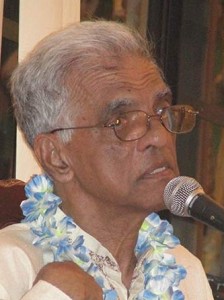The religious bodies including the Guyana Hindu Dharmic Sabha and the Hindu community at large have strongly condemned legalising same-sex relations, in light of Parliament sending a motion on that subject to a Special Select Committee for deliberations.





Comments are closed.